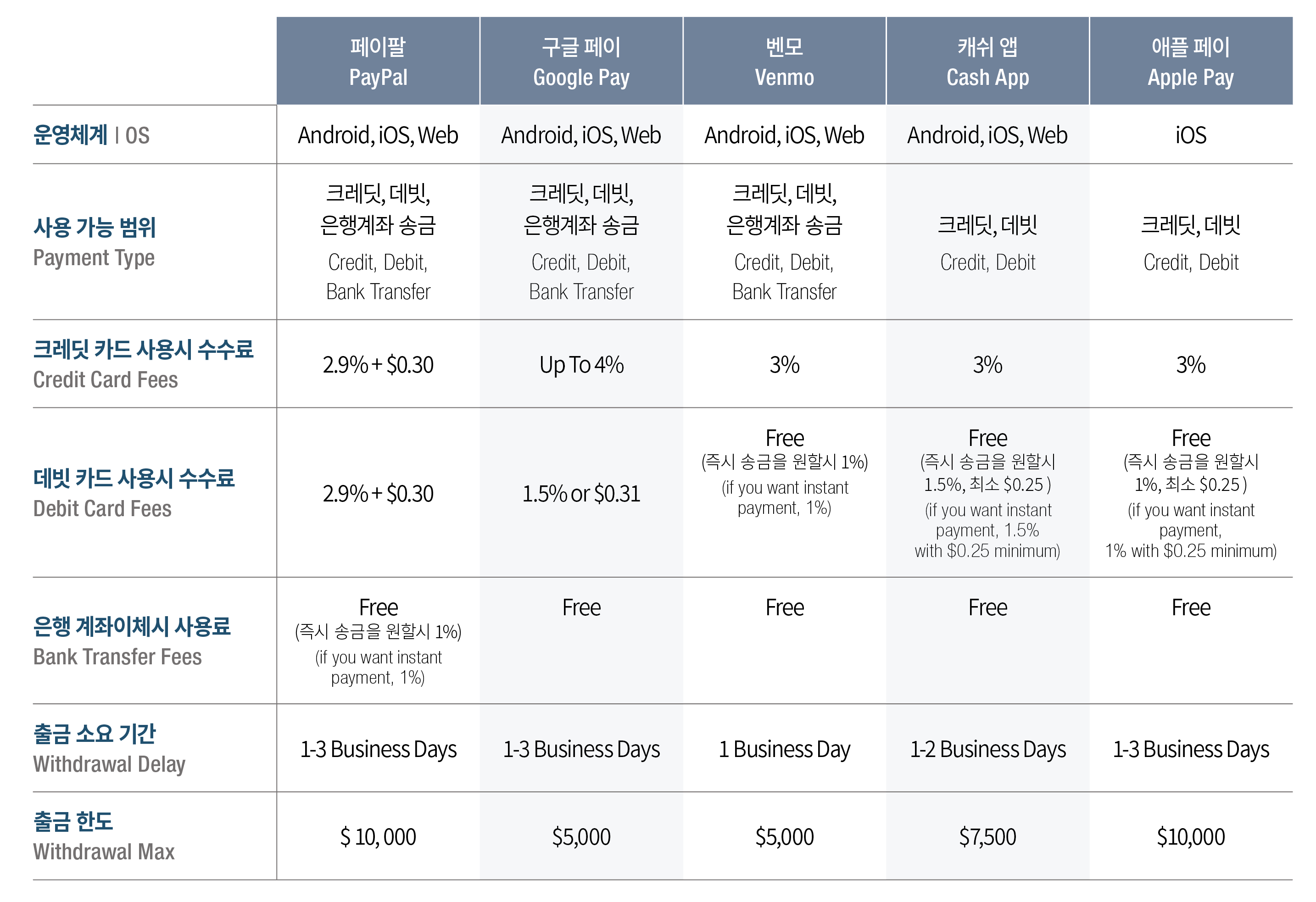Tax report if $600 or more is received per year
Attention if you accept payment via apps!
Lately, many people use P2P payment apps such as Cash App, Venmo, or Zelle in their daily lives. You can split a restaurant bill with your friends, or you can pay for the goods you purchase from small businesses including beauty supplies. Instead of carrying cash or credit cards, you carry money in your digital wallet on your phone.
Once you register with any of the payment apps, your bank account or credit card is linked to the app, allowing no hassle in using it as a payment method. You can even send money abroad and use it for online shopping.
PayPal, Venmo, Zelle, Google Pay, Meta Messenger, and Apple Pay are widely used in the U.S., and you can download them and register for free, but they may charge you fees depending on transaction. When a customer tries to use a payment app at checkout, you can look up the transaction fees and add the fees to the checkout total.

Among different apps, Venmo has the most users. Only available in the U.S., Venmo can be used at authorized partners. And it issues credit cards to users. As of November 2021, it has 80 million users. Founded in 2009, Venmo service is currently provided by PayPal, Inc.
You can send or request money via Venmo, set the direct deposit to a bank account, use Venmo card for debit or credit transaction, and even buy certain cryptocurrencies.
While it is convenient and easy to use and lets you leave your wallet at home, payment apps are now encountering an issue. A new IRS rule includes payment apps. According to the new rule, anyone who receives $600 or more per year will be reported to the IRS. Although the rule will not apply to this year’s tax return, your 2023 tax return to be submitted in 2024 will be affected.
According to the new rule, payment app companies will issue a 1099-k form to business owners whose transaction via the payment app exceeds $600. Venmo and PayPal will allow users who send money to mark their payment as a personal transaction or payment for service.
This tax report requirement has been around since 2012. However, until 2022, only sellers who received $20,000 or more a year with at least 200 annual transactions were reported. The limit on a number of transactions is gone, and the amount of $20,000 was significantly reduced to $600. It has caused some small businesses confusion. Today, 1 out of 4 Americans are making money through e-Commerce, so the response to the new tax rule is intense.
However, it is only a mandatory report on individuals. Even if you receive more than $600, you do not need to pay tax for the money. You are only required to report income when it is not personal transactions but sales of goods or services.
For example, if your customers’ checkout with payment apps, it is obviously a taxable income that needs to be included in your tax return. If you provided service and received the money in return, it is the same. However, if you sell a sofa to someone online for $1,200. If you have paid more than $1,200 for the sofa purchase, the money you received is not taxable income. Also, receiving money from your friends after picking up a tap for your friend is not taxable income.
If you received money as a gift from someone to whom you did not provide goods or services, then you might need to explain the relationship between you and the person. In 2021, the annual gift tax exemption is $15,000 per recipient and per giver. If you received less than $15,000, you do not need to pay taxes, but any amount in excess will be subject to taxation. And you owe an explanation as to the relationship and reason for payment.
Income tax deductions are available. Let’s say you received $1,000 via a payment app after providing a haircut service to someone. If you have a record of purchased items such as shears, combs, and hair products to be used for the haircut, you can deduct the expenses. However, you need to save your receipts and consult a tax expert before claiming a deduction.
The IRS warns that if you do not keep the records, you may be audited for any discrepancy in records and accused of tax evasion. Tax issues are important for all small businesses; you should know and prepare for the upcoming changes.